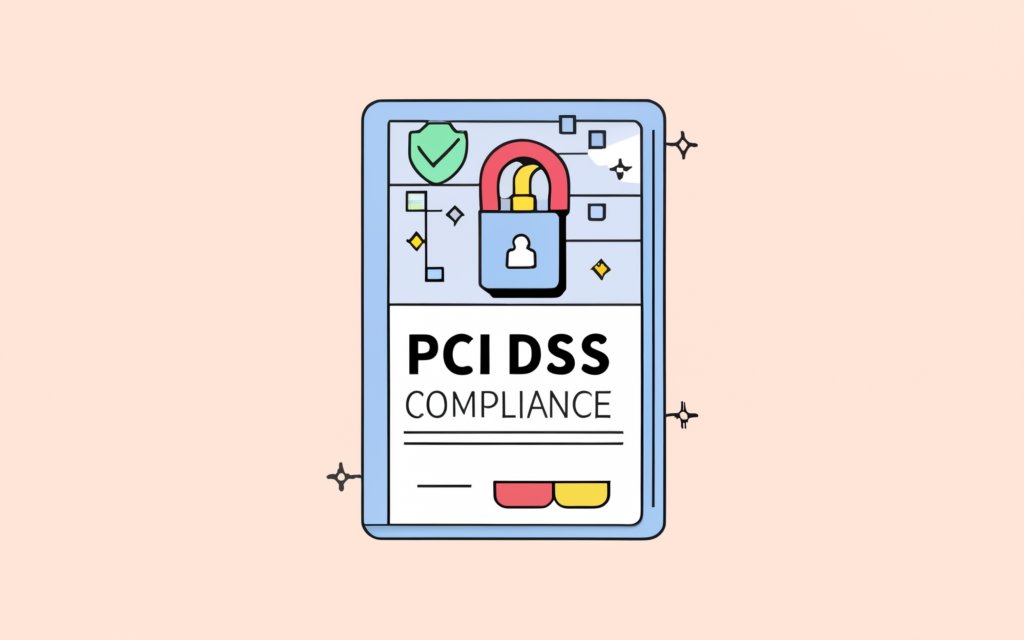A Comprehensive Guide to PCI DSS Compliance for Secure Payment Processing

Ensuring the security of cardholder data is critical for businesses involved in payment processing. The Payment Card Industry Data Security Standard (PCI DSS) sets several essential requirements for compliance. This guide will help you understand and implement these measures effectively:
Protect Stored Cardholder Data
Implement strict protocols for data storage, using encryption and security keys to safeguard sensitive information.
Key Actions:
- Encrypt cardholder data at rest.
- Limit data retention to the minimum necessary.
- Regularly rotate encryption keys and monitor access.
Regularly Test Security Systems and Processes
Perform routine vulnerability scans and penetration tests to identify and address security weaknesses proactively.
Key Actions:
- Conduct quarterly vulnerability scans.
- Perform annual penetration tests.
- Address identified vulnerabilities promptly.
Establish and Maintain a Secure Firewall Configuration
Firewalls serve as barriers to protect your network from unauthorised access. Regular updates and effective management of firewall rules are crucial for maintaining a robust security posture.
Key Actions:
- Configure firewalls to restrict access to only necessary traffic.
- Regularly update firewall rules to adapt to new threats.
- Monitor firewall activity logs for suspicious activity.
Change Vendor Default Settings
Default settings and passwords are easily exploitable. Customise all configurations to ensure they meet security standards, and maintain thorough documentation.
Key Actions:
- Replace default passwords with strong, unique ones.
- Change default system settings to secure configurations.
- Document all changes and review them periodically.
Encrypt Transmission of Cardholder Data
Secure all data transmitted over public networks using strong encryption methods to prevent interception by malicious actors.
Key Actions:
- Use TLS/SSL for encrypting data in transit.
- Ensure encryption certificates are up-to-date.
- Avoid using legacy encryption protocols.
Maintain Updated Antivirus Software
Regularly update antivirus programs across all devices to protect against malware and other threats.
Key Actions:
- Install and update antivirus software on all systems.
- Schedule regular scans and monitor for malware.
- Respond promptly to detected threats.
Develop and Maintain Secure Systems and Applications
Conduct risk assessments, apply timely patches, and ensure all systems and applications are up-to-date to mitigate vulnerabilities.
Key Actions:
- Apply security patches promptly.
- Conduct regular vulnerability assessments.
- Develop secure coding practices and review them.
Restrict Access to Cardholder Data
Limit access based on job necessity. Implement access controls to ensure only authorised personnel can access sensitive data.
Key Actions:
- Implement role-based access controls (RBAC).
- Conduct regular access reviews and updates.
- Use multi-factor authentication for sensitive access.
Restrict Physical Access to Data
Secure physical locations housing sensitive data, including servers and paper files, to prevent unauthorised access.
Key Actions:
- Implement access controls for physical locations.
- Use surveillance and alarm systems.
- Restrict access to authorised personnel only.
Assign Unique IDs to Each User
Avoid shared credentials. Each user should have a unique ID to enable traceability and accountability.
Key Actions:
- Assign unique user IDs and enforce strong passwords.
- Track user activity for auditing purposes.
- Remove access immediately upon termination.
Maintaining PCI DSS compliance is a dynamic and continuous process that is essential for protecting cardholder data. By following this comprehensive guide and utilising resources like Dhound security consulting and penetration testing, your organisation can effectively manage and protect cardholder data, ensuring secure and trustworthy payment processing.


